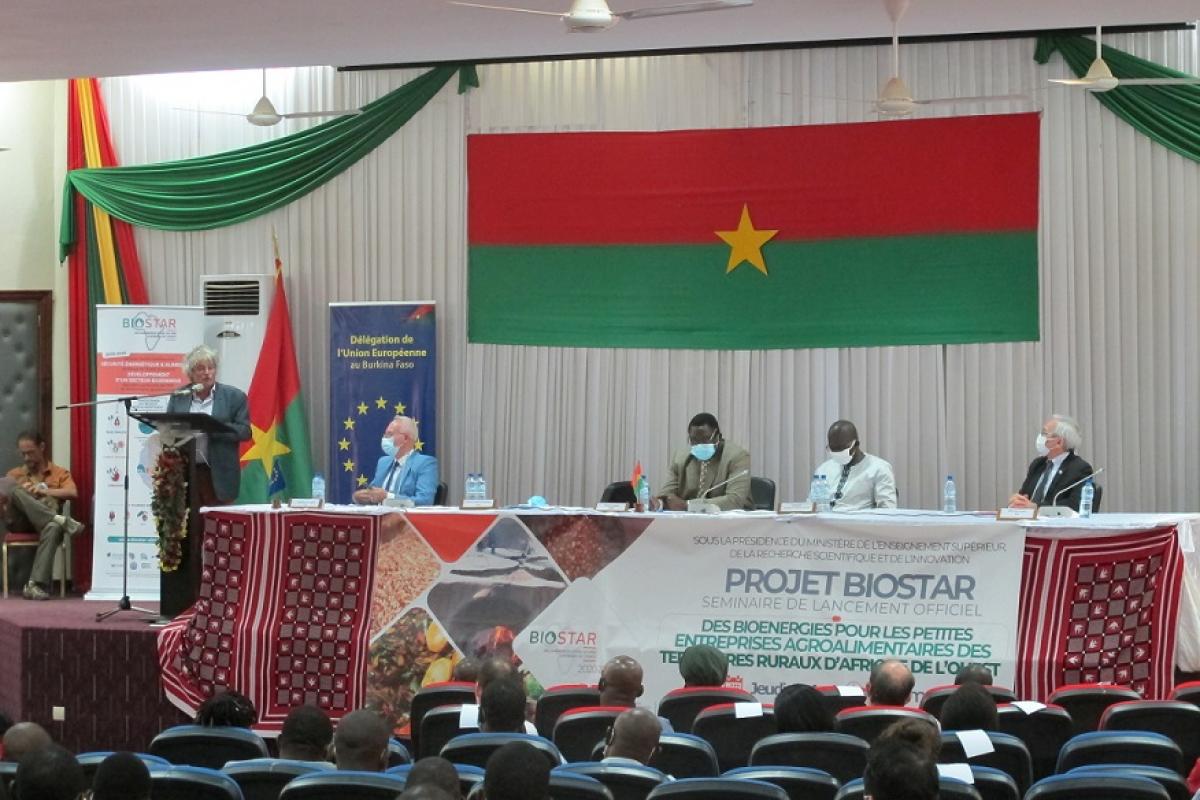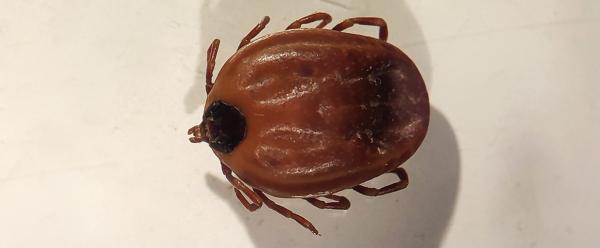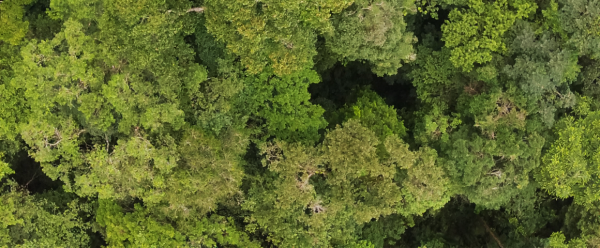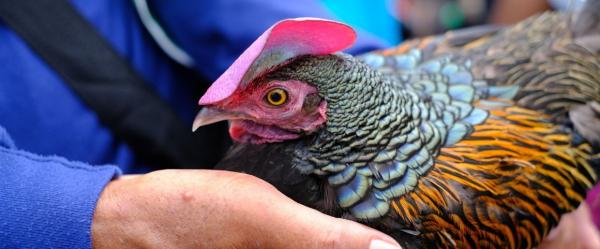Science at work 9 April 2024
- Home
- Press area
- Press releases
- BioStar bioenergy West Africa
Official launch of the BioStar project: bioenergy for SMEs in West Africa
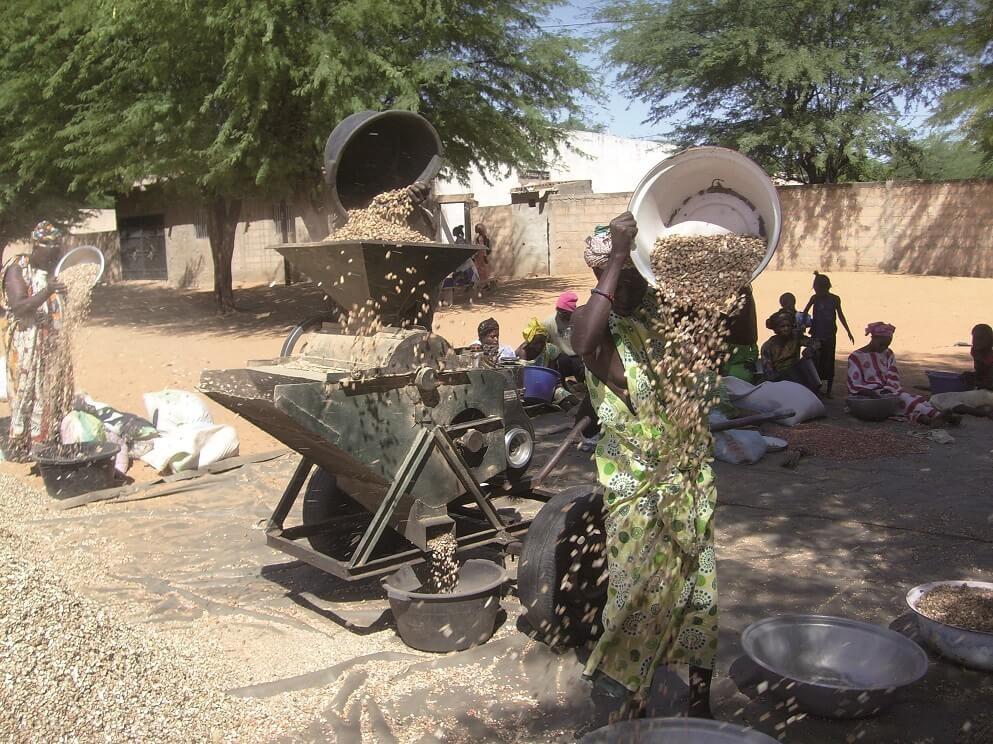
BioStar is aimed at improving energy supply to agrifood SMEs in West Africa, by converting their residues into heat, mechanical power or electricity © D. Dia, ISRA
Contributing to energy and food security in West Africa by developing an innovative bioenergy sector and meeting the needs of food processing SMEs: this is the objective of the BioStar project, funded for a five-year period by the European Union DeSIRA programme and the Agence Française de Développement, which have provided 9.4 and 2 million euros respectively.
“BioStar is aimed at improving energy supply to agrifood SMEs in West Africa by converting their residues into heat, mechanical power or electricity”, says Joël Blin, a researcher at CIRAD and coordinator of the project.
Introducing bioenergy innovations into these SMEs should help to secure their energy supply and thereby ensure their energy-independence for processes such as hulling, drying, extraction or steaming. “This will enable these SMEs to relocate to rural areas closer to agricultural production, which will limit the transportation of raw materials, reduce postharvest losses, and create jobs”, he continues.
These elements can only be implemented sustainably if specialists accompany the SMEs in this transition. The goal of the BioStar project is thus to develop a bioenergy sector by establishing a structure and a cooperation framework for this sector.
Five value chains at the core of the project
One of the pillars of BioStar is the optimization of food processing systems. Five agrifood sectors are thus central to the project: cashews, shea nuts, rice, mangoes and groundnuts. They were chosen based on their economic importance in the target countries, the massive involvement of women in these sectors, and also because they are the focus of national strategies for their sustainable development.
Moreover, for all of these sectors, transforming the agricultural product into a food product requires energy and generates residues that are not recycled at present, or only rarely.
The food processing SMEs in these five sectors will therefore be selected at the start of the project in order to equip them with a bioenergy technology that will enable them to convert their agrifood residues into energy.
A regional project involving nine partners
BioStar is a regional project that will be implemented in Burkina Faso (eight pilot SMEs) and Senegal (eight pilot SMEs), with dissemination activities in Ivory Coast, Mali and Niger.
According to the Ambassador of the European Union to Burkina Faso, Wolfram Vetter: “BioStar is a flagship project that is fully in line with our strategy to promote innovation in agrifood processing systems in order to make them more resilient to climate change”. The Director of AFD’s regional agency for the Sahel, Gilles Chausse, continues: “BioStar is at the crossroads of the major goals our agency pursues throughout the world, whether for climate issues or social relations, where research truly contributes to sustainable development.”
Coordinated by CIRAD for a five-year period, the project involves a consortium of nine partners in West Africa and Europe: Institut 2iE (Burkina Faso), IRSAT (Burkina Faso), Thomas Sankara University (Burkina Faso), ISRA (Senegal), Gaston Berger University (Senegal), NITIDAE (Burkina Faso/France), Catholic University of Louvain (Belgium), University of Hohenheim (Germany) and Roma Tre University (Italy).
“This project is a perfect illustration of scientific research designed to have an impact on economic and social development for the benefit of local people. The research is built around high-quality, lasting partnerships between all of the actors concerned. The keys to the success of the project are trust between institutions, complementarity of skills and strong synergies between the African and European partners involved in the BioStar consortium”, says Michel Eddi, CIRAD President Managing Director.
The total budget for the BioStar project stands at 11.4 million euros.
*present at the BioStar official launch ceremony:
- Prof. Roger Nebie, CNRST Delegate General
- Pr. Adjima Thiombiano, President of Joseph Ki-Zerbo University in Ouagadougou
- Pr Florent Song Naba, Vice-President for Research and International Cooperation, Thomas Sankara University
- José Sanchez Alegre, Political Advisor, Chargé d’Affaires of the European Union Delegation to Burkina Faso
- Gilles Chausse, Director of the AFD Regional Agency for the Sahel
- Michel Eddi, CIRAD President Managing Director
























